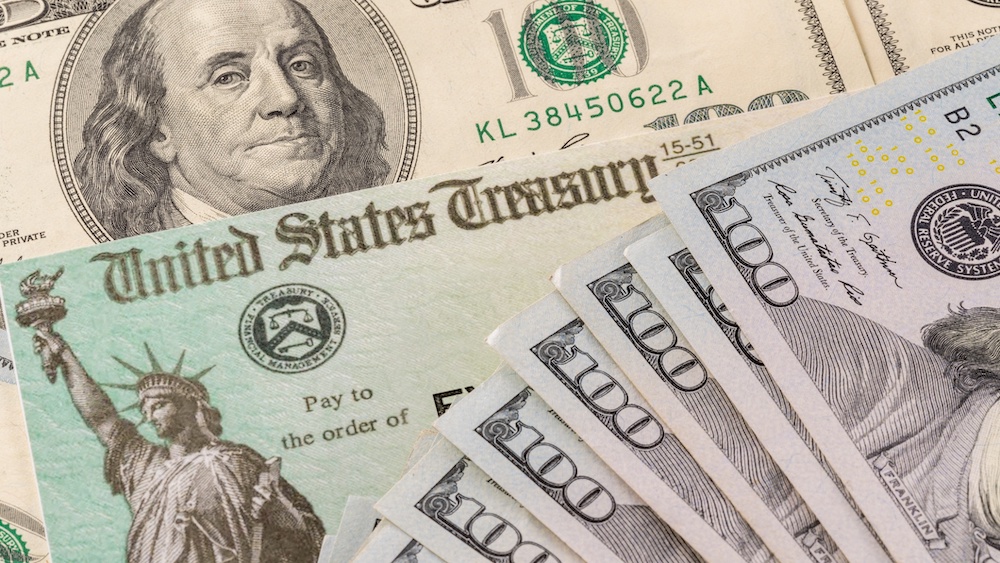If you’re interested in sharing your opinion on any cultural, political or personal topic, create an account here and check out our how-to post to learn more.
Opinions are the writer’s own and not those of Blavity's.
____
Now over a year into lockdown restrictions being imposed, we’ve seen the devastating impact of the pandemic on the economy. The passage of the American Rescue Plan Act (ARPA), shows what can happen when the government plays an active role in the economy. The ARPA, while a game-changer, is only a step in the right direction. We’ll need to change our thinking on what a healthy economy looks like and the policy prescriptions we reach for.
For too long, we have accepted as gospel the idea that government is always the problem. We have believed that all we need for a thriving economy are lower taxes, minimal regulation and budget hawkishness. This narrative falls apart on closer inspection. Under Reagan– the poster child for this thinking — the national debt tripled from $900B to $2.6 trillion. The top line income tax rate on the top 1% fell from 70% to 28%. We’re now living the legacy of this neo-liberal economic orthodoxy and the results are not pretty.
When the pandemic hit, research showed that 140 million Americans were classed as poor and 40% of the population could not afford a $400 emergency. In a country that uses unemployment figures as a barometer of economic health, it’s worth noting that nowhere in America can an adult working full time at the current minimum wage earn enough to cover housing, healthcare and other essentials. They say insanity is doing the same thing over and over and expecting different results. Similarly, it would be negligent to continue to apply the same old remedies of austerity and fiscal hawkishness when history tells us the economy is healthier and more sustainable when gains are distributed more evenly.
What we need now is to change how the economy is structured. We need economic policies that are redistributive by design. This means policies that are designed to distribute wealth across all classes, not simply concentrated in the highest income brackets in the vain hope they will eventually trickle down. Let’s start by having a more progressive tax code and implementing the “Buffett Rule.” This rule would ensure that millionaires and billionaires pay at least the same taxes as middle-income and working people.
More importantly, we need to question why we only demand government action when there is an economic crisis. We need to direct the same energy that we used in calling for stimulus checks to demand an increase in the federal minimum wage. The $7.25 an hour rate has not increased in over a decade, and even then, it only increased by $0.70 an hour. Yet research shows that raising the minimum wage to $15/hour would result in a $328 billion stimulus to the economy. These are the kinds of redistributive policies that we’ve been taught to think of as unworkable but would bring real change.
You might be reading this and thinking, well isn’t inequality just a hard reality? A natural consequence of living in a free, capitalist society? In reality, what we have is a form of corporate socialism where gains are privatized and losses are socialized. (Bailouts, anyone?) We should reject outdated notions of who are the takers and makers in the economy and look critically at the role of government in ensuring the circulation of economic surplus through all levels of society. We need to recognize that the kind of endemic inequality we see today is not inevitable but is instead a choice — a failure of economic policy and imagination.
The American Rescue Plan Act (ARPA) is easily the most important piece of economic legislation in over a generation. Yet, the law alone can’t begin to address the inequities that built into our economy. Passing it was only possible because there was a clear political will and lawmakers felt pressured into doing so.
Let’s not accept the bare minimum but instead demand more from our elected leaders. Looking for a place to start? Contact your elected representative and ask them to fight for a federal minimum wage rate of $15 an hour.
